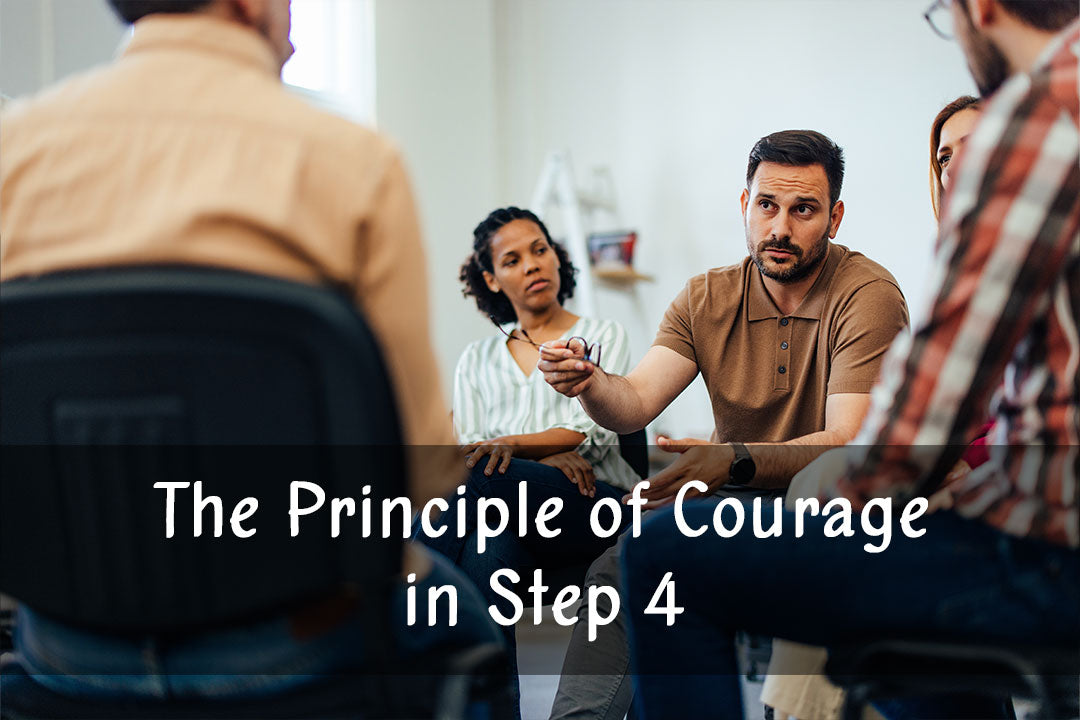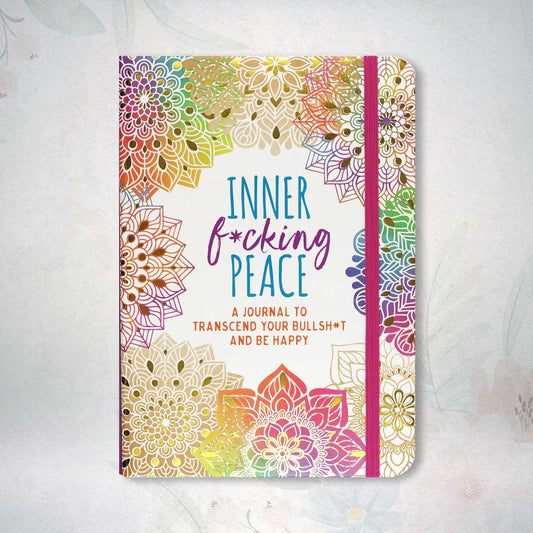
The Principle of Courage in Step 4
Share
The Spiritual Principle of courage lies behind Step Four, and the definition of courage is the ability to do something that frightens us or to have strength in the face of pain or grief. Here we summon the courage to honestly look deep within. We look at how our behavior has become warped to justify our continued misbehavior. Step Four is about honestly assessing who we are and how we got to be that way.
Yes, looking at the causes and conditions of our alcoholic/addict and other addictive behaviors can be pretty frightening, especially if we’ve never done it before! And that’s precisely why this step demands courage. And as we progress further, we see that life itself OFTEN demands courage. Courage to finish taking our steps, to tell the truth, to face something scary, or for some, just walking into a new meeting, a new job, or, say, a relationship change. But once we made a decision to turn our will and our lives over to a Power great than us, we are now at step 4, which demands the courage part because we now have a New Employer who is helping us and ultimately, this Employer aka Power is the source from where we draw that courage.
We have learned in the past that not facing ANYTHING was our course of action or just making things worse somehow. In step 4 we are asked to be fearless about the truth of ourselves, and that requires courage. We must remember that this step is a fact-finding mission, and we bring to light defects that have kept us and those we care for in utter darkness. The process of courage and taking step 4 brings us back into The Light.
It’s really beautiful to watch the process of people being relieved of so much secrecy and sickness. It’s a beautiful way of life to be courageous, and so many inspiring people are in our midst on this recovery journey!
We learn from this principle how to become totally and completely trusting that our God will walk us through anything, even fear. We believe that God doesn’t bring us this far, only to dump us! With this step and in life, we move on but do not forget our pasts and actually come to terms with them. A sense of peace can often be found in having courage! Courage is not the absence of fear; it is deciding that something is more important than our fear and acting on it.
We wish you all, dear customers, much courage on your journeys of self-discovery.
Embracing Courage: Navigating Step Four of Your 12-Step Recovery Journey
Recovery is a journey of personal growth, discovery, and healing, and each step in the 12-step program offers a unique challenge and opportunity for development. Step Four—making a "searching and fearless moral inventory" of ourselves—is often one of the most daunting stages, requiring a great deal of courage. Let's delve into why courage is crucial in this phase and how you can cultivate it to move forward in your recovery with strength and resilience.
Understanding Step Four
Step Four is a call to embark on a deep and often difficult introspective journey. It involves examining our past behaviors, relationships, and decisions to uncover patterns that may have contributed to our addiction. This process isn't about self-judgment but about self-awareness, recognizing the good and the bad with equal honesty.
The Role of Courage
- Facing the Past: It takes a significant amount of bravery to confront uncomfortable truths about oneself. Acknowledging mistakes and weaknesses can be painful, but it is also a vital step toward healing. Courage in this context means accepting your past to build a healthier future.
- Dealing with Discomfort: The introspection required in Step Four can stir up intense emotions and memories. It demands the courage to face these feelings without the old defense mechanisms of denial or substance use.
- Committing to Honesty: Complete honesty with oneself is perhaps the most challenging aspect of Step Four. It involves not only acknowledging the negative but also recognizing and appreciating the positive traits and accomplishments in your life.
Cultivating Courage
Building the courage needed for Step Four doesn't happen overnight, but here are some strategies to help you develop this essential quality:
- Support Systems: Lean on your support groups, sponsors, and therapists. Sharing your fears and experiences with others who understand can significantly lessen the burden and reinforce your courage.
- Small Steps: Break down the inventory process into manageable parts. Tackling a little at a time can prevent overwhelm and help you see progress, making the task less daunting.
- Mindfulness and Meditation: Practices like mindfulness and meditation can improve emotional regulation and anxiety management, providing you with the calm and focus needed to face tough truths.
- Journaling: Writing down your thoughts and feelings can be a private way to begin confronting and processing them. It can also serve as a reflection tool to witness your own growth over time.
- Educational Resources: Read books, listen to podcasts, or attend workshops about courage and recovery. Learning more about both can demystify the process and equip you with strategies to handle it.
While Step Four demands a great deal of courage, it is also a step that fosters significant personal growth. By confronting your past and your innermost self, you lay a foundation for a sober, more self-aware future. Remember, courage does not mean the absence of fear, but the determination to face it. Each small act of bravery builds a pathway to a new, empowered life in recovery.
As you continue to navigate your recovery, keep in mind that every step forward, no matter how small, is a victory. Embrace the journey with courage, knowing that each step is a building block to a healthier, more fulfilling life.






